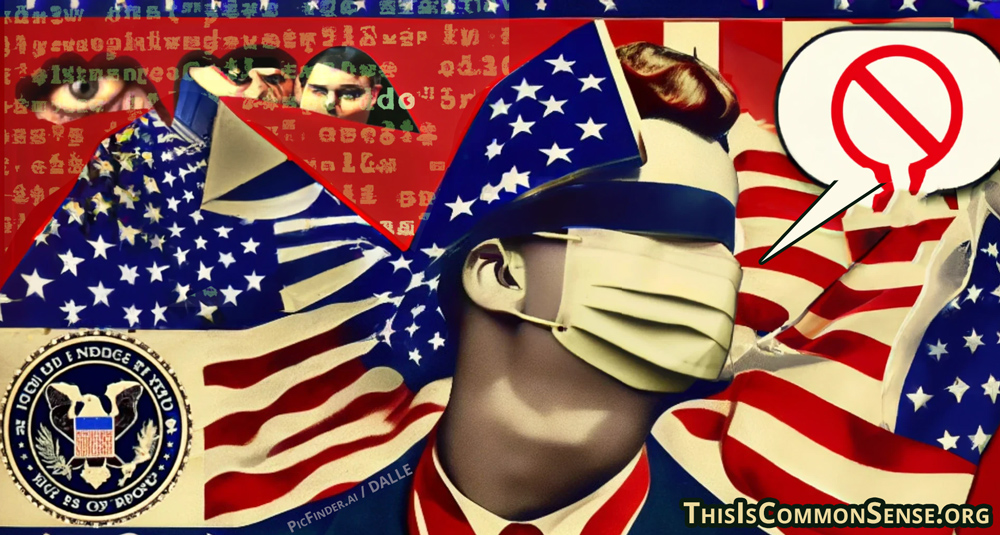How specific do requests for records of unconstitutional activity have to be?
In February, the Federal Bureau of Investigation pretended an inability to fulfill America First Legal Foundation’s freedom-of-information request for documents about the FBI’s pre-election efforts to censor Twitter users. The agency declared the request to be “overly broad.”
What’s been “overly broad” is the policy of censorship, disinformation, and more by the Deep State using private partners. Meaning their real problem is doubtless that the requested documents are “overly incriminating,” too unmistakably what AFL wanted.
So the FBI stonewalled.
And AFL has sued, in its complaint concluding that the agency’s “blanket denial of AFL’s FOIA request is contrary to law and should not stand.”
Thanks to evidence brought to light by other litigation and by Matt Taibbi’s reporting on Twitter’s internal records, none of us is just guessing that the FBI has acted to censor constitutionally protected discourse. We know that the FBI’s National Election Command Post flagged at least 25 Twitter accounts for “misinformation.”
But the only party to the censorship revealing relevant information voluntarily is Twitter itself, thanks to decisions by Twitter’s new management under Elon Musk.
With respect to everybody else colluding to censor social media — the FBI, the DOJ, the White House, Google, Facebook, etc. — looks like it’ll have to be lawsuits every step of the way.
The First Amendment’s stricture upon Congress to “make no law” abridging our “freedom of speech, or of the press,” does not allow the FBI, the CIA, the NSA, and other agencies to simply subcontract. Nor are they free to mold public opinion.
A government-controlled “press” is not a free press.
This is Common Sense. I’m Paul Jacob.
Illustration created with PicFinder.ai and DALL-E2
—
See all recent commentary
(simplified and organized)

5 replies on “Overly Broad Stonewalling”
This article is the perfect example of why the bright and prescient draftors of the Constitution created 3 branches of government and checks and balances.
Yes, litigation will be necessary and it is up to the judiciary to step up and do their constitutional duty.
If they don’t the Republic is lost!
The 4th branch’s job is to check the other 3. We the People are that branch and have a right and responsibility to defend ourselves and our liberties. Far too much delegation or waiting for “someone to do something”. Good example is the elections , which can be compromised wherever they are done electronically. And arguably are so compromised, despite the protestations by those that profit that they just wouldn’t. As a systems analyst from Virginia Tech, I disbelieve, because it is so easily done without leaving evidence that it was.
The law allows citizens to withhold information that would be incriminating. Does a federal agency have a concurrent right to not disclose where it has broken the law, thereby exposing its agents to criminal prosecution?
They seem to think so.
Sometimes I think resorting to the courts and forcing FOIA request is just a tactic to try to slow them down. Ultimately it doesn’t really matter because their persistence is absolute. It is almost as if the annoying presence of lawsuits and FOIA stimulates the Deep States immunity. I guess the great red herring is the illusion that one more blow will bring them down. There will always be a certain element who are fascinated with that anticipation of collapse.